EEE Department Presentation
EEE Program Description Form
Electrical-Electronics Engineering
History
Our department was established as the Department of Electrical and Electronics Engineering, affiliated to the Faculty of Engineering and Architecture of Mustafa Kemal University, with the law number 3837, dated 11/07/1992. It received its first students in the 1998-1999 academic year. Electrical and Electronics Engineering Department started evening education in the 2005-2006 academic year. Our department was transferred to our newly established University Iskenderun Technical University, Faculty of Engineering and Natural Sciences with the law number 29335 dated April 23, 2015.
About Department
Education and training activities continue with 3 Professors, 4 Associate Professors, 6 Assistant Professors and 6 Research Assistants in our department.
It is a profession that develops the methods of using the experience and practice gained by learning Mathematics and Basic Sciences economically for the benefit of humanity, using the materials and forces available in nature, using reasoning.
The aim of engineering is to improve the existing technology and to bring new systems to the use of humanity with the design and production of new systems. The most important infrastructure of technology production is qualified man power and basic research. The abilities and contributions of engineers are very important in evaluating the qualified human potential of a society.
In this process, generally two types of engineers are needed.
1. type engineer; It is the implementer or manager of the planned works, usually works under the name of project planning and implementation.
2. type engineer; It is the personnel that thinks, researches, plans and creates. These engineers especially play an important role in the design and production of completely new systems. Research skills are as important as knowledge and skills in these studies. Our main goal is to train engineers who will undertake the tasks of producing, transferring, adapting and using technology. In addition, to provide education and training in the field of private technology at the undergraduate and graduate level, and to realize science-industry cooperation in order to help other disciplines.
Educational Objectives of Our Department
- Having a good infrastructure in electrical and electronics engineering,
- Having the ability to use modern engineering tools and methods,
- Having the ability to design, analyze, apply and interpret a circuit or system in the field of electrical and electronics,
- Able to work with different disciplines, have an effective communication ability,
- Knowing the basic problems and needs of the era, understanding the social and universal effects of engineering applications,
- Having internalized professional ethics and awareness of lifelong learning,
- To train well-equipped Electrical and Electronics Engineers and thus to contribute to the development of social welfare.
Graduates' Outcomes
- An ability to apply knowledge of Electrical and Electronics Engineering
- Information about modern engineering tools and methods
- Ability to use modern engineering tools and methods
- Ability to design, conduct, analyze and interpret the results of a specific electrical-electronics engineering experiment
- An ability to identify, define and solve an electrical-electronics engineering problem.
- Ability to design a desired electrical-electronic engineering circuit, system or process
- Understanding the social and universal effects of electrical and electronics engineering applications
- More advanced knowledge and skills in a specific area of electrical and electronics engineering
- To have knowledge about the important and basic problems of the age
- The ability to work in teams with different disciplines
- To be able to communicate in writing and verbally
- Awareness of the necessity of lifelong learning and the ability to realize it
- Absorbing professional and ethical rules
Employment Opportunities
When you become an electrical-electronics engineer, you can find job opportunities in various sectors both in our country and abroad, in engineer, consultant and manager positions. Below are some of the sectors and companies that you can be employed in our country:
• Public Sector: Institutions such as the Ministry of Science, Industry and Technology, TÜBİTAK, the Ministry of Health, the Ministry of Energy and Natural Resources, the Ministry of Environment and Urbanization, the Ministry of Transport, Maritime Affairs and Communications, EMRA, BTK, the Undersecretariat of Defense Industry.
• Defense and Aviation Sector: Institutions such as Aselsan, Havelsan, Roketsan, Mikes, STM, FNSS, TAI, TUSAŞ, Otokar, Makine Kimya Endustrisi Kurumu (MKEK), Siemens, Netaş, THY, Pegasus Airlines.
• Communication and Media Sector: Major communication companies such as Turkcell, Vodafone, Türk Telekom, Superonline and all institutions in the media sector such as TRT.
• Healthcare Sector: Companies that manufacture and sell medical devices such as General Electric, Siemens, Toshiba, Nüve, Üzümcü in state hospitals providing health services and private hospitals such as Acıbadem, Medikal Park and Dünya Göz.
• Energy and Automotive Sector: Facilities where electricity is produced and distributed in companies such as EnerjiSA, Aksa, Zorlu Enerji, Sanko Enerji; Automotive companies such as Ford, TOFAŞ, Renault, Toyota, Hyundai, BMC.
• White Goods and Consumer Electronics Sector: Companies such as Arçelik, Vestel, Bosch, Schneider, Kumtel, Casper.
• Software and Information Sector: In this sector, many electrical and electronics engineers work together with computer engineers. They are involved in the development and implementation of both software and computer network technologies.
In addition to these sectors, you can continue your career as an academician. Almost all of the well-established or newly established universities in our country have electrical and electronic engineering departments and there is a serious need for successful and productive academicians who can teach English in these departments.
In addition, electrical and electronic engineers can establish their own technology companies to serve in such sectors even at a young age and present examples of successful entrepreneurship.
Vocational Education in Business (IME)
Vocational Education in Business Administration (IME) is a program that offers a full-time work experience in line with their vision and goals just before graduation to our successful students who are enrolled in Undergraduate and Associate Degree programs, do not have any undergraduate courses and prefer the Business World.
ACADEMIC STAFF
Erasmus+ Inter-institutional Agreements with Programme Countries (Contracted with Our Department )
| GERMANY |
HOCHSCHULE AALEN - TECHNIK UND WIRTSCHAFT |
| LITHUANIA |
KAUNO TECHNOLOGIJOS UNIVERSITETAS |
| LITHUANIA |
KLAIPEDOS VALSTYBINE KOLEGIJA |
| LITHUANIA |
Siauliu valstybine kolegija |
| ROMANIA |
UNIVERSITATEA 1 DECEMBRIE 1918 |
| ROMANIA |
UNIVERSITATEA DIN PETROSANI |
| BULGARIA |
UNIVERSITY OF RUSE ANGEL KANCHEV |
| SERBIA |
UNIVERZITET U NOVOM SADU |
| BULGARIA |
Vasil Levski National Military University |
COORDINATORSHIPS
COMMISSIONS
|
QUALITY AND CONTINUOUS IMPROVEMENT COMMISSION
|
| Head |
Assoc. Prof. Dr. Mehmet Ali BELEN |
mali.belen@iste.edu.tr |
| Member |
Res. Asst. Dr. Arzu TURKSOY |
arzu.golge@iste.edu.tr |
| Member |
Res. Asst. Kemal AYGÜL |
kemal.aygul@iste.edu.tr |
| ACCREDITATION COMMISSION |
| Head |
Assist. Prof. Dr. Mehmet KURTOĞLU |
mehmet.kurtoglu@iste.edu.tr |
| Member |
Res. Asst. Fatih Özkan ALKURT |
fozkan.alkurt@iste.edu.tr |
| Member |
Res. Assist. Ahmet ATÇI |
ahmet.atci@iste.edu.tr |
| GRADUATION AND ALUMNI RELATIONS COMMISSION |
| Head |
Assoc. Prof. Dr. Murat FURAT |
murat.furat@iste.edu.tr |
| Member |
Res. Asst. Dr. Mustafa SAKA |
mustafa.saka@iste.edu.tr |
| Member |
Res. Asst. Selva BAL |
selva.bal@iste.edu.tr |
SCIENTIFIC ACTIVITIES
LIGHTNING PROTECTION AND GROUNDING SEMINAR (RADSAN - 30.04.2014)
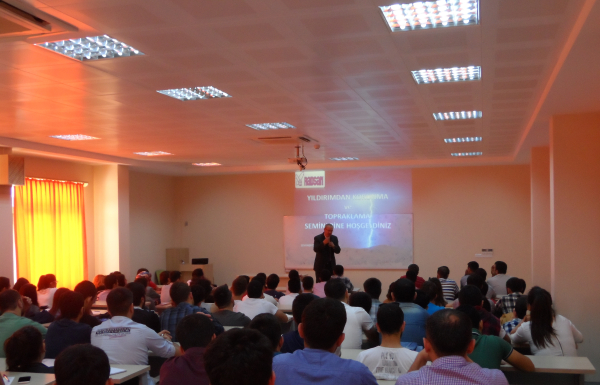
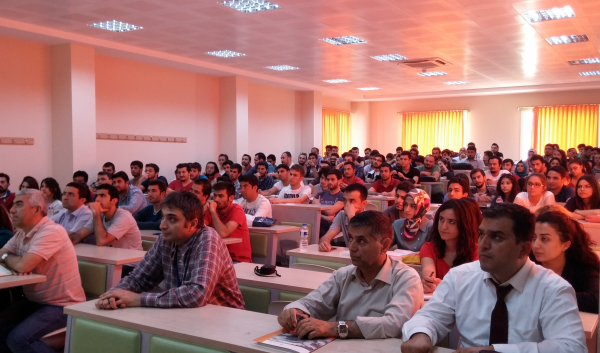
TESLA COIL PRODUCTION (19.12.2017)
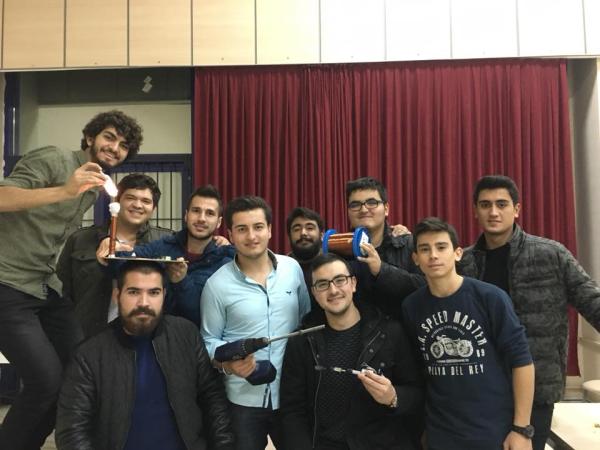
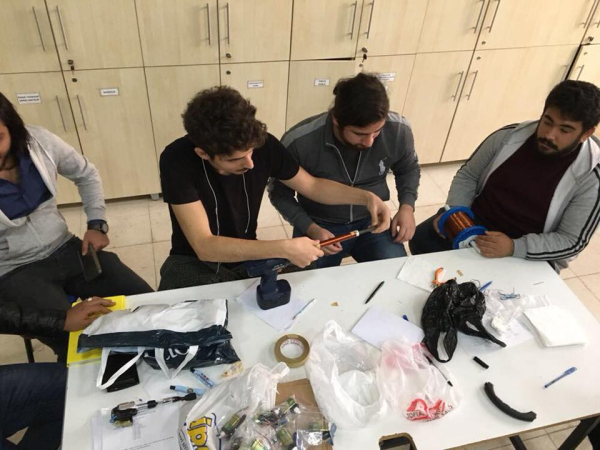
IEEE Central Anatolia Regional Meeting (22.10.2016- İSTE-IEEE Student Branch)
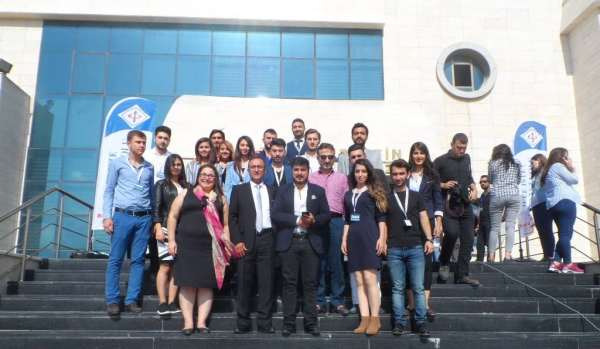
TECHNICAL TOURS
AKSA ATİK WIND POWER PLANT (ATİK,BELEN/HATAY - 23.10.2016)
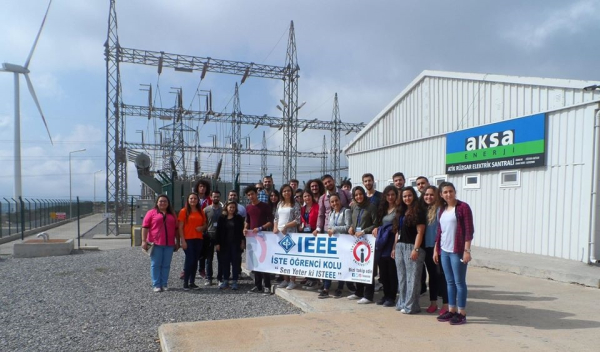
MERCEDES BENZ A.Ş. (AKSARAY - 17.04.2017)
IEEE Central Anatolia Regional Meeting (ESKİŞEHİR OSMANGAZİ ÜNİVERSİTESİ - 22.04.2017)
İSDEMİR (İSKENDERUN / HATAY - 18.10.2017)
Technical Equipment Sets Grant from ENELSAN to the Students of our Department (ISTE, Department of Electrical and Electronics Engineering - 28.02.2024)